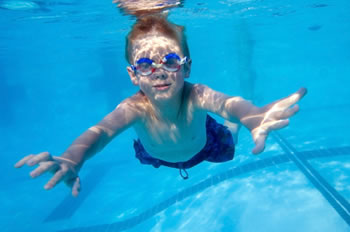by: Meg Carroll, Early Childhood Committee
Summer camp can be anything from a partial day a few days per week to an overnight or away camp that may last for weeks. Think about the needs of your child with learning disabilities and the needs of the whole family as you give consideration to enrolling your child in summer camp.
One option for a child with learning disabilities or related disabilities to make the most of summer is to attend summer camp. Days are structured and children can have activity opportunities that might not be available at home, particularly if parents are away from home all day working.
The idea of a summer camp just for students with learning disabilities is appealing in part because kids may have opportunities to address the social aspects of having learning disabilities as well as building a core of academic competencies.
In an article from www.greatschools.org entitled “Make It a Perfect Learning Summer,” I was quoted as noting that the “key factors parents should look for when considering a camp are:
- Training of the personnel. Are the teachers credentialed for work with kids who have LD? If teens are providing the service to your children, is the person who plans for the experiences and supervises the teens adequately trained for this work? Don’t be afraid to ask for the teachers’ credentials.
- Attention to all aspects of the experience. Has the camp’s administration planned activities that are appropriate for students with LD? Are there opportunities for campers to learn and practice social skills? What is the plan for dealing with the difficulties kids may face with the demands of life away from home and experiences outside of their regular routine? How will children be coached to deal with conflicts or differences of opinion?
- Appropriate staffing. Learning disabilities are often considered a mild disability because the students have adequate intellect. However, learning disabilities affect children in different ways. Sometimes, ordinary activities (such as sharing toothpaste or navigating a cafeteria line) can be difficult. Is the ratio of staff to campers sufficient to give campers guidance as needed and supportively monitor their activities? A ratio of one counselor to four campers is recommended.
- Preparation prior to activities. Often, kids with LD don’t like surprises. Find out how the camp presents new activities. Will they give adequate thought to experiences that will be new to campers? Will there be a preview (perhaps a video or role play) of the activity, along with instruction about what to expect? At the end, will there be a chance to talk about what they did?”
Day camps are offered by park districts across the country. Often, park districts collaborate with other nearby park districts to offer special programming for students with disabilities; this is especially likely to be the case in larger metropolitan areas. Camp counselors or program leaders may be certified or licensed teachers who work for camps during the summer. The services and options for enrollment are listed online and in brochures. Part-day, full-day, week-to-week, and full summer options are often available. Park district programs may be a relatively low cost because park districts are partly subsidized by the taxes paid in the community. Special recreation programs is the term that parents will see in brochures. Sometimes, the particular disabilities that may be best served by a particular offering will be included. Typically, the age range for participants will also be listed. Some park districts even have special recreational programming for adults with disabilities.
Another option is to enroll a student with learning disabilities and related disabilities in a general camp or recreation program. This can be advantageous for children to have typical role models and opportunities for interaction among a variety of children. The way in which your child receives educational services may help families decide which option to choose. If a family decides to enroll a child in a typical summer camp, think of what Richard Lavoie says in his widely-known video: Last One Picked, First One Picked On. Rick notes that the parent must prepare the child for the situation and prepare the situation for the child. This means that the family should take the child to the place and allow the child to become familiar and comfortable with the space and the parent can explain about the expectations, timing, and other details of the camp. To prepare the situation for the child, the parent should talk with the director or camp counselors who will serve the child and let the camp adults know that the child is a great kid but may need some specific accommodations or background information to be successful at the camp.
In more rural communities or communities separated from one another by significant travel, another kind of “summer camp” might consist of trading with another parent for a few days of the week. Each of you takes a day with the children from both families, freeing the other parent for those days and providing instant companionship for the children. Get to know the other parent well before suggesting this arrangement.
One of the greatest wishes of most parents is that their children be happy. A well-researched summer camp may be just the thing to help children be successful and gain happiness in the social realm.
Online Sites for Summer Camps for Children with LD and or ADHD:
KidsCamp.com: http://www.kidscamps.com/special_needs/learning_disab_add_camps.html
Summer Camps.com: http://www.summercamps.com/Special_Needs_Camps/Learning_Disabilities/
Summer Camps for Individuals with Special Needs: http://www.friendshipcircle.org/blog/2013/02/13/25-summer-camps-for-individuals-with-special-needs/
Meg Carroll, is a member of the LDA Early Childhood Committee, Professor at Saint Xavier University, Chicago, IL and LDA of Illinois 2nd VP.



